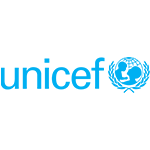Improving Adherence to Routine Immunization in Comoros
HIGHLIGHTS
- Data suggests that several behavioral barriers are eroding vaccine confidence among younger parents and caregivers in Comoros.
- We’re working with partners in Comoros to design, implement and evaluate evidence-based behavioral interventions that address key barriers to immunization uptake.
- Our initial evaluation results are expected in later 2025.
The Challenge
While general awareness of the importance of vaccination remains high in Comoros, concerns about safety and differences in attitudes across age groups suggests a potential erosion of vaccine confidence among younger parents and caregivers.
Inadequate infrastructure, vaccine-associated costs, and unfriendly reception and extended waiting times at health facilities compound attitudinal challenges and contribute to reluctance among caregivers to visit health facilities for routine vaccination services. Evidence-based behavioral interventions can address these issues by rebuilding trust, improving service delivery, and strengthening the connection between health services and communities.
Our Approach
We are working with the Ministry of Public Health and Population (Comoros), UNICEF Comoros, the World Health Organization (WHO), and other relevant local stakeholders to design, implement, and evaluate evidence-based behavioral interventions that address key barriers to vaccination uptake. Our aim is to develop practical, scalable, and effective interventions that can be integrated into Comoros’ existing health systems, ultimately contributing to increased routine immunization rates.
Results
Evaluation results are expected in later 2025.
Takeaway
Interested in our work applying behavioral science to global health? Email health@ideas42.org or reach out to us on LinkedIn to join the conversation.




